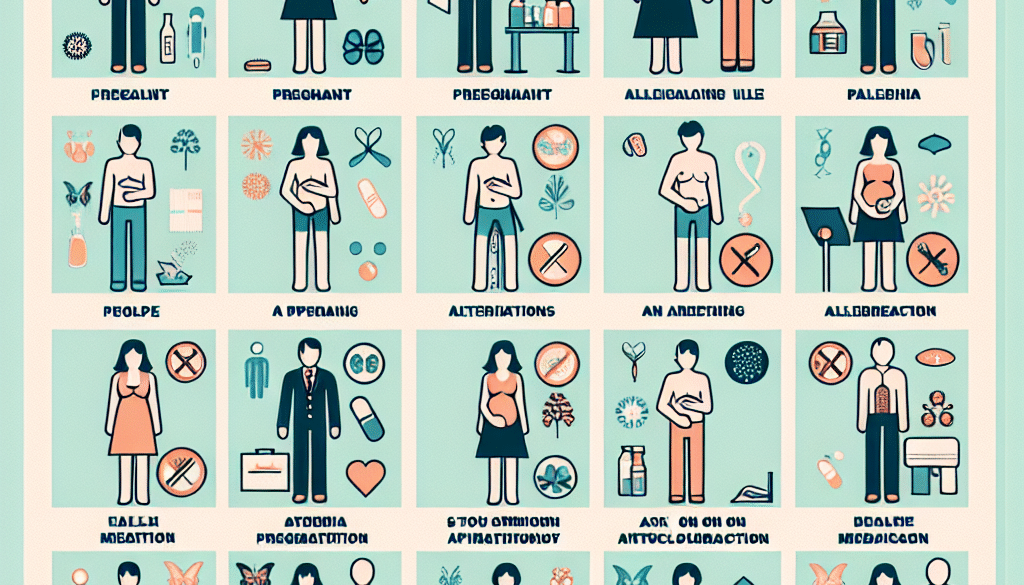Who Should Not Take Spirulina?
-
Table of Contents
- Spirulina Intake: Who Should Avoid This Superfood?
- Understanding Spirulina and Its Benefits
- Individuals with Phenylketonuria (PKU)
- People with Autoimmune Diseases
- Those with Hemochromatosis
- Individuals Taking Certain Medications
- Pregnant and Breastfeeding Women
- People with Allergies to Seafood or Seaweed
- Those Concerned About Contaminants
- Conclusion: Spirulina’s Suitability Depends on Individual Circumstances
- Discover ETprotein’s High-Quality Protein Products
Spirulina Intake: Who Should Avoid This Superfood?

Spirulina, a blue-green algae, is often hailed as a superfood due to its rich nutrient profile, boasting high levels of protein, vitamins, and minerals. However, despite its health benefits, spirulina is not suitable for everyone. Certain individuals should exercise caution or avoid spirulina altogether to prevent potential health risks. This article explores who should not take spirulina and the reasons behind these recommendations.
Understanding Spirulina and Its Benefits
Before delving into who should avoid spirulina, it’s important to understand what spirulina is and why it’s considered beneficial. Spirulina is a type of cyanobacteria, commonly referred to as blue-green algae, that grows in both fresh and saltwater. It is consumed by humans and animals due to its high nutritional value.
- Rich in protein: Spirulina contains about 60-70% protein by weight, which is higher than most plant-based sources.
- Vitamins and minerals: It is a good source of B vitamins, iron, magnesium, and other essential nutrients.
- Antioxidants: Spirulina contains antioxidants like phycocyanin, which can help protect cells from damage.
Despite these benefits, not everyone should consume spirulina. The following sections outline specific groups of people who should avoid it.
Individuals with Phenylketonuria (PKU)
Phenylketonuria (PKU) is a rare inherited disorder that causes the amino acid phenylalanine to build up in the body due to the lack of an enzyme needed to process it. Since spirulina is high in protein, it naturally contains phenylalanine. Individuals with PKU must adhere to a low-phenylalanine diet to prevent serious health problems, including intellectual disabilities and mental disorders. Therefore, spirulina is not recommended for those with PKU.
People with Autoimmune Diseases
Autoimmune diseases, such as lupus, multiple sclerosis, and rheumatoid arthritis, cause the immune system to attack the body’s own cells. Spirulina has been shown to stimulate the immune system, which could potentially exacerbate symptoms of autoimmune conditions. Patients with these diseases should consult their healthcare provider before taking spirulina.
Those with Hemochromatosis
Hemochromatosis is a condition where the body absorbs too much iron from the diet, leading to iron overload. Since spirulina is high in iron, individuals with hemochromatosis should avoid it to prevent further iron accumulation, which can damage organs and lead to serious health issues.
Individuals Taking Certain Medications
Some medications may interact negatively with spirulina. For example, immunosuppressants, which are used to treat autoimmune conditions or prevent organ transplant rejection, could be less effective if taken with spirulina due to its immune-boosting properties. Additionally, anticoagulant medications, such as warfarin, could interact with the vitamin K found in spirulina, affecting blood clotting. It’s crucial for individuals on medication to consult their healthcare provider before adding spirulina to their diet.
Pregnant and Breastfeeding Women
While spirulina is generally considered safe, there is limited research on its effects during pregnancy and breastfeeding. Due to the potential for contamination with harmful bacteria or heavy metals, pregnant and breastfeeding women should be cautious about consuming spirulina. It’s best to consult a healthcare provider before taking spirulina supplements during these sensitive periods.
People with Allergies to Seafood or Seaweed
Individuals with allergies to seafood, seaweed, or other sea vegetables may also be allergic to spirulina. If you have known allergies to these foods, it’s best to avoid spirulina to prevent allergic reactions.
Those Concerned About Contaminants
Spirulina can be contaminated with toxic substances, such as heavy metals, microcystins, and harmful bacteria, especially if it is harvested from natural sources that are polluted. Consuming contaminated spirulina can lead to liver damage, stomach pain, nausea, vomiting, weakness, thirst, rapid heartbeat, shock, and even death. It’s essential to purchase spirulina from reputable sources that test for contaminants.
Conclusion: Spirulina’s Suitability Depends on Individual Circumstances
In conclusion, while spirulina offers numerous health benefits, it is not suitable for everyone. Individuals with PKU, autoimmune diseases, hemochromatosis, those taking certain medications, pregnant and breastfeeding women, people with seafood or seaweed allergies, and those concerned about contaminants should avoid or be cautious about consuming spirulina. Always consult with a healthcare provider before adding any new supplement to your diet.
Discover ETprotein’s High-Quality Protein Products
If you’re looking for alternative protein sources that are safe and high-quality, consider ETprotein’s range of organic bulk vegan proteins. ETprotein offers a variety of plant-based proteins, such as rice, pea, watermelon seed, pumpkin seed, and sunflower seed proteins, which are non-GMO and allergen-free. Their products are ideal for those seeking protein supplements without the risks associated with spirulina.
About ETprotein:
ETprotein, a reputable protein and L-(+)-Ergothioneine (EGT) Chinese factory manufacturer and supplier, is renowned for producing, stocking, exporting, and delivering the highest quality organic bulk vegan proteins and L-(+)-Ergothioneine. They include Organic rice protein, clear rice protein, pea protein, clear pea protein, watermelon seed protein, pumpkin seed protein, sunflower seed protein, mung bean protein, peanut protein, and L-(+)-Ergothioneine EGT Pharmaceutical grade, L-(+)-Ergothioneine EGT food grade, L-(+)-Ergothioneine EGT cosmetic grade, L-(+)-Ergothioneine EGT reference grade and L-(+)-Ergothioneine EGT standard. Their offerings, characterized by a neutral taste, non-GMO, allergen-free attributes, with L-(+)-Ergothioneine purity over 98%, 99%, cater to a diverse range of industries. They serve nutraceutical, pharmaceutical, cosmeceutical, veterinary, as well as food and beverage finished product distributors, traders, and manufacturers across Europe, USA, Canada, Australia, Thailand, Japan, Korea, Brazil, and Chile, among others.
ETprotein specialization includes exporting and delivering tailor-made protein powder and finished nutritional supplements. Their extensive product range covers sectors like Food and Beverage, Sports Nutrition, Weight Management, Dietary Supplements, Health and Wellness Products, and Infant Formula, ensuring comprehensive solutions to meet all your protein needs.
As a trusted company by leading global food and beverage brands and Fortune 500 companies, ETprotein reinforces China’s reputation in the global arena. For more information or to sample their products, please contact them and email sales(at)ETprotein.com today.












